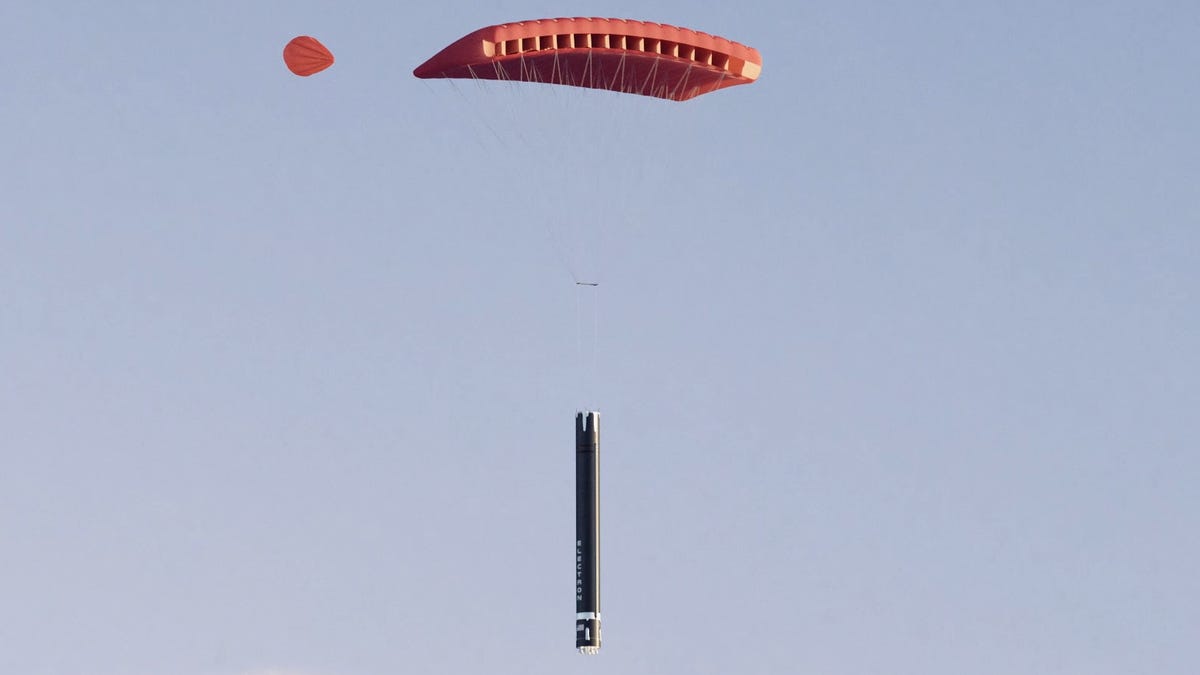Rocket Lab plans to catch rocket boosters midair with a helicopter
Playing catch with a rocket.

The booster will deploy a parachute on its return to Earth, which a helicopter will zip by and pick up.
Rocket Lab, a private New Zealand spaceflight company which offers launch services for small satellites, announced Tuesday it plans to recover and re-fly the first stage of its workhorse rocket "Electron". In a presentation livestreamed to YouTube, Rocket Lab founder and CEO Peter Beck revealed plans to capture the Electron's first stage in midair as it floats back to Earth after launch.
Rocket Lab's two-stage Electron rocket is a sleek, black launch vehicle designed to carry small satellites to space. It stands at just 17 meters tall, which is tiny in comparison to SpaceX's 70-meter tall Falcon 9. At present, its first stage booster is expendable which means Rocket Lab is producing a new booster every time it launches.
So far, that's seen seven boosters lift off from Launch Complex 1 in New Zealand since 2017, with only its inaugural flight resulting in a failure. The company has already flown payloads to orbit for NASA, the US Air Force and DARPA.
Catch me if you can.
The previous Electron mission, which flew on June 29, provided Rocket Lab with the data it needed to realize their ambitious plans, but the next mission, launching this month, will continue to gather data for future recovery efforts.
"Reusing the stage of a small launch vehicle is a complex challenge, as there's little mass margin to dedicate to recovery systems," said Beck in a press release. "For a long time we said we wouldn't pursue reusability for this very reason, but we've been able to develop the technology that could make recovery feasible for Electron."
You can rewatch the announcement below:

